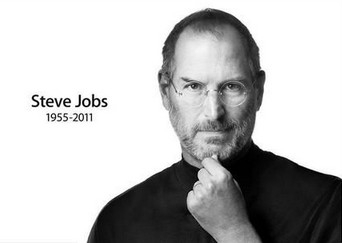Getting shocked was a badge of honor for Woz. He prided himself on being a hardware engineer, which meant that random shocks were routine. He once devised a roulette game where four people put their thumbs in a slot; when the ball landed, one would get shocked. “Hardware guys will play this game, but software guys are too chicken,” he noted.
對(duì)沃茲來(lái)說(shuō),被電擊就好像是獲得榮譽(yù)獎(jiǎng)?wù)乱粯印W鳛橐幻布こ處熥屗茏院溃@也意味著觸電是家常便飯。他曾經(jīng)發(fā)明過(guò)一種輪盤賭游戲:四個(gè)人把拇指按在槽里,球落下之后,其中的一個(gè)會(huì)被電到。“搞硬件的人才愿意玩這個(gè)游戲,搞軟件的都太膽小了。”他這么強(qiáng)調(diào)。
During his senior year he got a part-time job at Sylvania and had the chance to work on a computer for the first time. He learned FORTRAN from a book and read the manuals for most of the systems of the day, starting with the Digital Equipment PDP-8. Then he studied the specs for the latest microchips and tried to redesign the computers using these newer parts. The challenge he set himself was to replicate the design using the fewest components possible. Each night he would try to improve his drawing from the night before. By the end of his senior year, he had become a master. “I was now designing computers with half the number of chips the actual company had in their own design, but only on paper.” He never told his friends. After all, most seventeen-year-olds were getting their kicks in other ways.
到了高中四年級(jí),他在喜萬(wàn)年公司(Sylvania)得到了一份兼職工作,人生中第一次有機(jī)會(huì)在計(jì)算機(jī)前工作。他從書上自學(xué)了FORTRAN語(yǔ)言,并閱讀了當(dāng)時(shí)大多數(shù)電子系統(tǒng)的使用說(shuō)明,從數(shù)字設(shè)備公司(DigitalEquipment)的:PDP-8開(kāi)始。之后,他研究了最新的微芯片的規(guī)格,開(kāi)始使用這些最新的元器件重新設(shè)計(jì)計(jì)算機(jī)。他為自己定的挑戰(zhàn)是:使用最少的元器件來(lái)實(shí)現(xiàn)。“我關(guān)上房門,在自己的房間里獨(dú)自完成了這項(xiàng)工作。”他回憶說(shuō)。每天晚上,他都會(huì)努力在前一天的基礎(chǔ)上進(jìn)一步完善自己的設(shè)計(jì)。到四年級(jí)結(jié)束時(shí),他已經(jīng)成為這方面的專家了。“我設(shè)計(jì)的計(jì)算機(jī),使用的芯片數(shù)量只有市面上產(chǎn)品中芯片數(shù)量的一半,但我的設(shè)計(jì)還停留在圖紙上。”他從沒(méi)有跟他的朋友提到過(guò)這些。畢竟,大多數(shù)17歲的孩子都在忙著干其他事情。
On Thanksgiving weekend of his senior year, Wozniak visited the University of Colorado. It was closed for the holiday, but he found an engineering student who took him on a tour of the labs. He begged his father to let him go there, even though the out-of-state tuition was more than the family could easily afford. They struck a deal: He would be allowed to go for one year, but then he would transfer to De Anza Community College back home. After arriving at Colorado in the fall of 1969, he spent so much time playing pranks (such as producing reams of printouts saying “Fuck Nixon”) that he failed a couple of his courses and was put on probation. In addition, he created a program to calculate Fibonacci numbers that burned up so much computer time the university threatened to bill him for the cost. So he readily lived up to his bargain with his parents and transferred to De Anza.
髙中第四年感恩節(jié)的周末,沃茲拜訪了科羅拉多大學(xué)。學(xué)校放假了,但他找到了一個(gè)工程系的學(xué)生,那個(gè)人帶著他參觀了實(shí)驗(yàn)室。沃茲尼亞克請(qǐng)求父親送他去那里讀書,盡管州外學(xué)生的學(xué)費(fèi)并不是他們輕易拿得出的。他們達(dá)成了一個(gè)協(xié)議:沃茲可以去科羅拉多大學(xué)讀一年,但一年之后必須轉(zhuǎn)回離家較近的迪安扎(DeAnza)社區(qū)學(xué)院。1969年秋天抵達(dá)科羅拉多之后,沃茲把大把的時(shí)間用在了惡作劇上(包括印發(fā)大量寫著“去你媽的尼克松”的傳單),以至于未能通過(guò)一些課程的考試,被學(xué)校留校察看。此外,他編寫了一個(gè)程序,不停地計(jì)算斐波那契數(shù)列,占用了大量的計(jì)算機(jī)運(yùn)行時(shí)間,學(xué)校威脅要他承擔(dān)費(fèi)用。為了不讓父母知道這些事,他轉(zhuǎn)學(xué)到了迪安扎。
After a pleasant year at De Anza, Wozniak took time off to make some money. He found work at a company that made computers for the California Motor Vehicle Department, and a coworker made him a wonderful offer: He would provide some spare chips so Wozniak could make one of the computers he had been sketching on paper. Wozniak decided to use as few chips as possible, both as a personal challenge and because he did not want to take advantage of his colleague’s largesse.
在迪安扎愉快地度過(guò)了一年后,沃茲尼亞克決定休學(xué)去賺錢。他在一家為交通部門生產(chǎn)計(jì)算機(jī)的公司里找到了工作,一名同事還給了他豐厚的饋贈(zèng):將一些多余的芯片提供給沃茲,讓他將一直停留在圖紙上的計(jì)算機(jī)變成現(xiàn)實(shí)。沃茲尼亞克決定使用盡可能少的芯片,一方面作為對(duì)自己的挑戰(zhàn),另一方面也是因?yàn)椴幌肜猛碌目犊?/span>
Much of the work was done in the garage of a friend just around the corner, Bill Fernandez, who was still at Homestead High. To lubricate their efforts, they drank large amounts of Cragmont cream soda, riding their bikes to the Sunnyvale Safeway to return the bottles, collect the deposits, and buy more. “That’s how we started referring to it as the Cream Soda Computer,” Wozniak recalled. It was basically a calculator capable of multiplying numbers entered by a set of switches and displaying the results in binary code with little lights.
沃茲的大多數(shù)工作都是在附近一個(gè)朋友家的車庫(kù)中完成的,此人就是當(dāng)時(shí)還在家園高中讀書的比爾·費(fèi)爾南德斯(BillFernandez)。為了讓工作順利完成,他們喝了很多克雷格蒙特奶油蘇打水,然后騎著自行車去森尼韋爾的西夫韋超市退還瓶子,換到錢后再買更多汽水。“正是因?yàn)檫@個(gè)我們才把它叫做奶油蘇打水電腦。”沃茲尼亞克說(shuō)。這其實(shí)是一臺(tái)可以做乘法的計(jì)算器,通過(guò)一系列開(kāi)關(guān)將數(shù)字輸入,然后用小燈顯示的二進(jìn)制碼呈現(xiàn)結(jié)果。
When it was finished, Fernandez told Wozniak there was someone at Homestead High he should meet. “His name is Steve. He likes to do pranks like you do, and he’s also into building electronics like you are.” It may have been the most significant meeting in a Silicon Valley garage since Hewlett went into Packard’s thirty-two years earlier. “Steve and I just sat on the sidewalk in front of Bill’s house for the longest time, just sharing stories—mostly about pranks we’d pulled, and also what kind of electronic designs we’d done,” Wozniak recalled. “We had so much in common. Typically, it was really hard for me to explain to people what kind of design stuff I worked on, but Steve got it right away. And I liked him. He was kind of skinny and wiry and full of energy.” Jobs was also impressed. “Woz was the first person I’d met who knew more electronics than I did,” he once said, stretching his own expertise. “I liked him right away. I was a little more mature than my years, and he was a little less mature than his, so it evened out. Woz was very bright, but emotionally he was my age.”
1970年秋天,奶油蘇打水電腦完工后,費(fèi)爾南德斯告訴沃茲尼亞克,他應(yīng)該見(jiàn)見(jiàn)家園高中的一個(gè)人。“他叫史蒂夫,跟你一樣喜歡惡作劇,也跟你一樣喜歡電子學(xué)。”這應(yīng)該是繼32年前休利特走進(jìn)帕卡德的車庫(kù)之后,硅谷歷史上意義最重大的一次車庫(kù)會(huì)面。“史蒂夫和我就在比爾家門前的人行道上坐了很久,分享彼此的故事——大多是關(guān)于我們搞的惡作劇,還有各自做過(guò)的電子設(shè)計(jì),”沃茲回憶說(shuō),“我們有如此多的共同點(diǎn)。一般來(lái)說(shuō),我很難向別人解釋清楚我做的設(shè)計(jì),但史蒂夫一下子就聽(tīng)明白了。我喜歡他。他痩巴巴的,但是充滿了活力。”喬布斯也印象深刻。“沃茲是我見(jiàn)過(guò)的第一個(gè)比我還懂電子學(xué)的人,”他從專業(yè)的角度這么說(shuō),“我立刻就喜歡上他了。我比自己的真實(shí)年齡要顯得更成熟,而沃茲正相反,我們拉平了。沃茲非常聰明,但情商方面卻像是我這個(gè)年齡的人。”
In addition to their interest in computers, they shared a passion for music. “It was an incredible time for music,” Jobs recalled. “It was like living at a time when Beethoven and Mozart were alive. Really. People will look back on it that way. And Woz and I were deeply into it.” In particular, Wozniak turned Jobs on to the glories of Bob Dylan. “We tracked down this guy in Santa Cruz who put out this newsletter on Dylan,” Jobs said. “Dylan taped all of his concerts, and some of the people around him were not scrupulous, because soon there were tapes all around. Bootlegs of everything. And this guy had them all.”
除了對(duì)計(jì)算機(jī)的興趣,兩人還都熱愛(ài)音樂(lè)。“那時(shí)候是音樂(lè)的鼎盛時(shí)期,”喬布斯回憶說(shuō),“就好像貝多芬和莫扎特還活著一樣。真的。人們回顧那個(gè)時(shí)期時(shí)真的會(huì)這么想。沃茲和我深深沉醉其中。”尤為值得一提的是,沃茲讓喬布斯迷上了鮑勃·迪倫(BobDylan)。“我們一直追隨著圣克魯茲一個(gè)叫斯蒂芬·皮克林(StephenPickering)的家伙,他會(huì)放出迪倫的行蹤動(dòng)向,”喬布斯說(shuō),“迪倫會(huì)錄下自己所有的音樂(lè)會(huì),但他身邊的一些人不是很謹(jǐn)慎,所以這些磁帶很快就到處都是了。盜版也到處都是。而這個(gè)皮克林收集了他所有的磁帶。”











